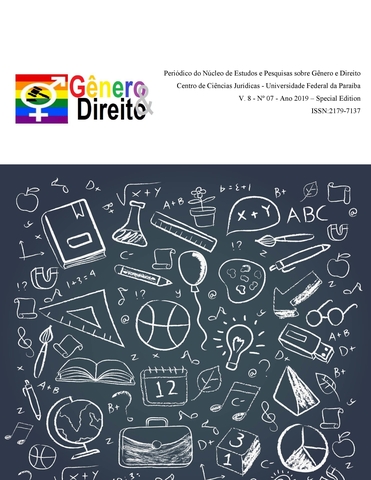LEGAL PERSONALITY OF INCORPORATED ENTITIES IN RUSSIAN LEGISLATION AND TNC
DOI:
https://doi.org/10.22478/ufpb.2179-7137.2019v8n7.49998Palavras-chave:
transnational corporations, TNC’s, globalization, legal entity, private law.Resumo
The goal of any branch of law is the effective regulation of public relations in any area with the goal of streamlining them. For this, it is necessary that the content of legal norms, as in a mirror, reflects the modern development of society and its ties. The past century and the current century have brought a lot to the modern world, and many of these innovations are associated primarily with the process of globalization. The consequence of this was the spread of integration processes, both between states and between business structures. Transnationalism and transnational corporations are natural consequences of the development of the world; they reflect the desire of mankind to unify goods and services. We note right away that by a transnational corporation we mean a complex union of legal and non-legal entities with the ability to combine their resources, experience and knowledge on a global scale, between which there are stable internal economic ties, consisting of one or more parent companies and separate, but dependent subsidiaries units located in more than two states. This article compares the legal personality of a legal entity under the civil law of the Russian Federation with the legal personality of transnational corporations.
Downloads
Referências
Vitruk N.V. Fundamentals of the theory of the legal status of individuals in a socialist society. M., 1979.P. 89.
Bratus S.N. Subjects of civil law // M.: Gosyurizdat. - 1950.P. 6
G. Shershenevich, Textbook of Russian Civil Law (according to the publication of 1902). – M., 1995 // Civil Law Course. Division IV Family Law. Tula. - 2001.S. 118.
Sabirova L. L. et al. Teachings on legal entities in pre-revolutionary domestic civil law: individual aspects. - 2014. -- 12 p.
Ryasentsev V.A. (Ed.). Soviet civil law. - Publishing house “Legal literature”, 1965. - T. 1.
Planiol M., Ripert G. Treatise on the Civil Law. - West Publishing Company, 1959.- S. 1663.
Mankovsky I. A. Theories of the essence of a legal entity: development history and modern scientific approaches // Russian Law Journal. - 2010. - No. 4. - S. 117-126.
Ramamurti R. Developing countries and MNEs: Extending and enriching the research agenda // Journal of International Business Studies. - 2004. - T. 35. - No. 4. - p. 277-283.
Wai-Chung Yeung H. Transnational Corporations and Business Networks: Hong Kong Firms in the ASEAN Region / Routledge Advances in Asia-Pacific Business, Routledge, 2002. 320 p.
Lunts L. A. Course in Private International Law. The special part // M.: Legal literature. - 1975.-- p. 389.
Convention on Transnational Corporations (Moscow, March 6, 1998) // Article 2. [The legal system “Guarantor”].
Cassese Antonio. International Law in a Divided World / Clarendon Press, 1986. - p. 103.
Friedmann W. The Changing Structure of International Law // Columbia Law Review. 1962. Volume 62. pp. 1147-1165

